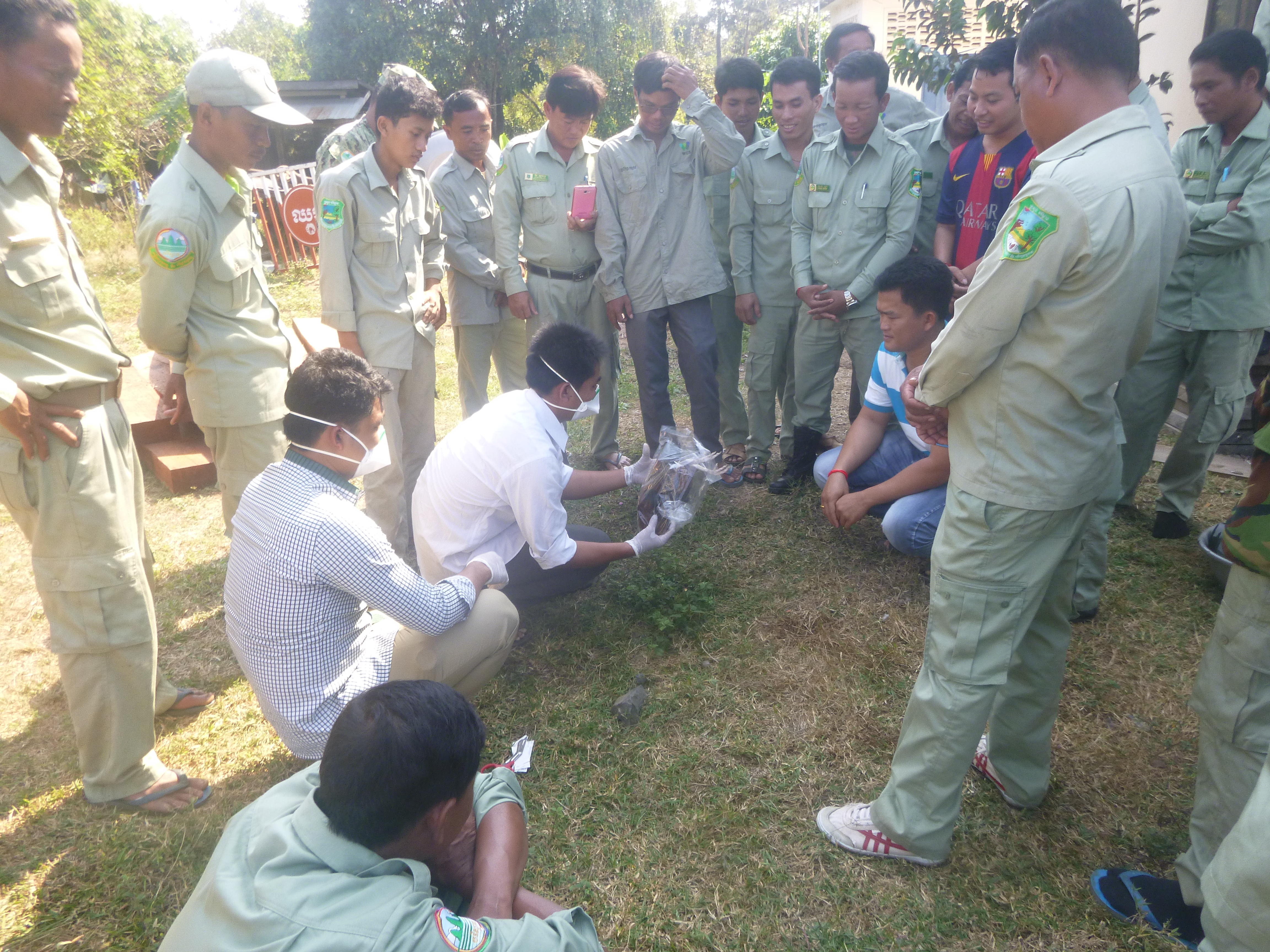

WildHealthSkills: WildHealthNet conducts capacity bridging and building with in-person and virtual trainings for all actors in the network, from field-based rangers to laboratory techs to national coordinators. The goal is to develop and share science-based protocols and best practices, and implement strong curricula so that each actor is empowered to fully participate.
- Long term financial support for technical expertise and input
- Government and local stakeholder awareness of the links between wildlife health and human health and well-being
- Government and local stakeholder interest and engagement in capacity development for wildlife surveillance and wildlife health monitoring
- Adequate human personnel without too much turnover, in order to maintain network
A foundational understanding of the links between wildlife/ environmental health and human and domestic animal health and well-being ensures better interest and buy-in for One Health competency training such as wildlife surveillance. Stakeholder-specific trainings (e.g. Event detection and reporting for forest rangers; Necropsy and pathology for laboratory staff/ veterinarians; Sample collection and handling for rangers & confiscation teams; Technology for network coordinator and rangers), multi-lingual training packages, with core competencies and evaluation tools enable broader reach and buy-in for capacity building and maintenance and continued expansion of the surveillance network national, regionally and globally.